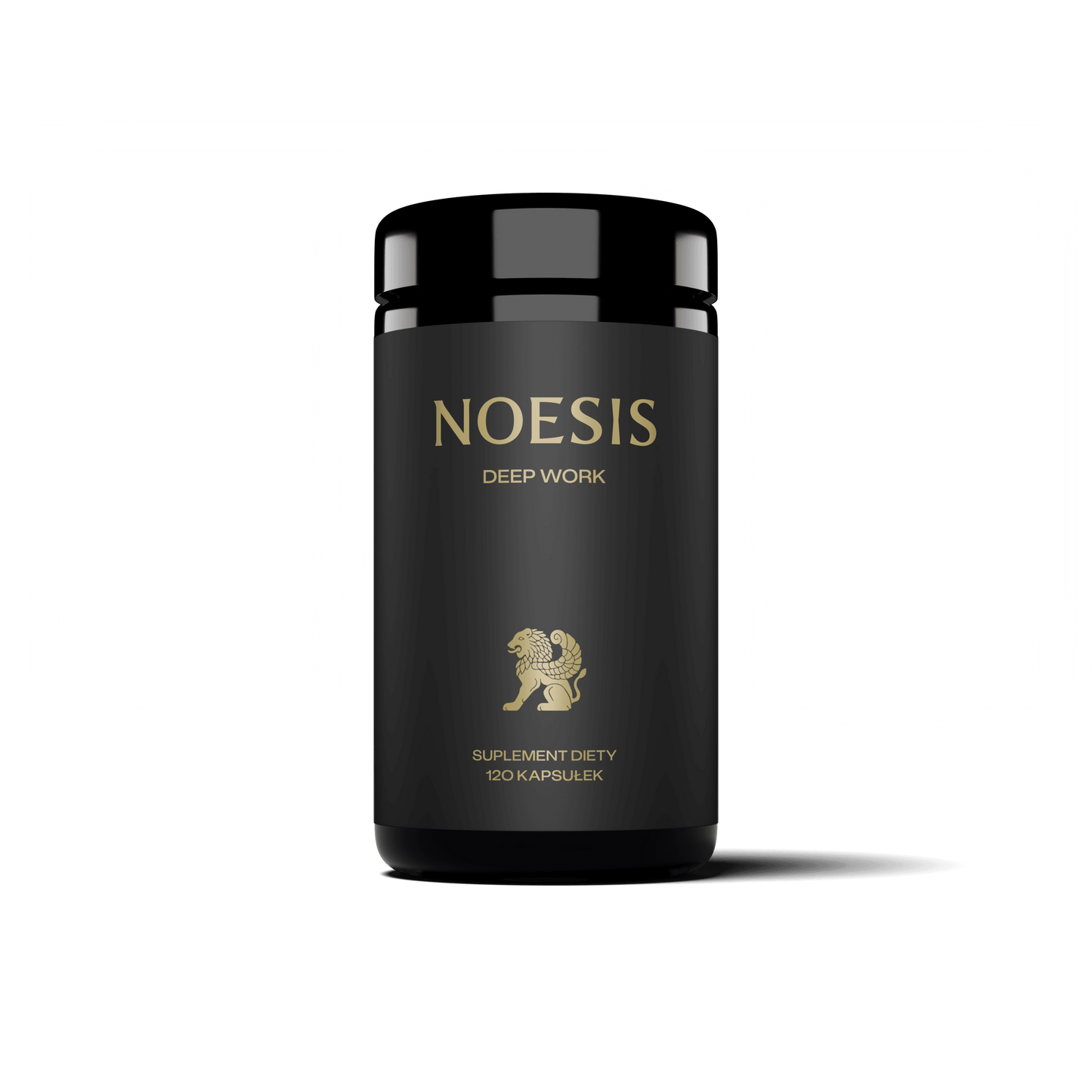
Have you ever wondered why, in times of danger, our heart starts beating faster, our breathing quickens, and we are ready for immediate action? It's stress - a mechanism that has helped our ancestors survive for thousands of years. Although today we don't have to run away from predators, stress is still a constant in our lives. But does it always work to our advantage? Why, although it can be helpful, can it also make life miserable?
What is stress?
Stress is the body's natural response to stimuli that we interpret as a threat. It can be short-term and mobilizing or long-term, debilitating to the body and mind. In a stressful situation, the body activates the sympathetic nervous system, causing the heart rate to increase, pupils to dilate and cortisol levels to rise. Stress can result from many factors, such as work pressure, interpersonal conflicts, worries about the future or even an overloaded lifestyle. While some stress is natural and can be mobilizing, chronic stress can have negative effects on mental and physical health. Understanding the mechanisms of stress is key to effectively managing it and avoiding its long-term effects.
Phases of stress
Every stress goes through three phases: the alarm reaction, the adaptation phase and the exhaustion phase.
The alarm reaction is the moment when we recognize a threat and defense mechanisms are activated. Adrenaline and cortisol levels increase, which prepares the body to fight or flee. In this phase, there may be arousal, a sudden surge of energy, but also a feeling of tension and anxiety. An accelerated heartbeat occurs.
In the adaptation phase, we begin to adapt to the stressful situation, but long-term stress causes fatigue and weakness. Irritability, insomnia, and decreased immunity may occur.
The exhaustion phase occurs when stress lasts too long, when we lose control over it. Concentration disorders and chronic fatigue appear. This is the moment when intervention and effective stress reduction techniques are necessary.
Negative emotions and chronic stress
Stress often goes hand in hand with emotions such as anger, fear and dissatisfaction. These emotions, if not properly processed, can lead to a build-up of tension that weakens the ability to cope with everyday challenges. Over time, it can affect the nervous system, leading to anxiety, burnout and even depression.
Failure to properly manage these emotions can cause a person to have trouble controlling their reactions, becoming more impulsive or withdrawn. Stress also causes a decrease in dopamine and serotonin levels, which can lead to decreased motivation, problems with decision-making and concentration. Additionally, persistently high levels of cortisol can affect the quality of sleep, weaken the immune system and increase the risk of psychosomatic diseases. As a result, we can experience chronic fatigue, irritability and increasing difficulties in maintaining emotional balance.

How do negative emotions affect the body?
The body's response to stress includes an increased heart rate, dilated pupils, hand tremors, and muscle aches. Cortisol and adrenaline levels increase, which leads to a temporary increase in energy and alertness, but can lead to exhaustion in the long term. Stress negatively affects the nervous and hormonal systems, which can result in sleep problems, chronic fatigue, and a weakening of the body's regenerative capacity.
Stress can also lead to chronic ailments such as digestive disorders, a weakened immune system, and increase the likelihood of developing psychosomatic illnesses such as hypertension, diabetes, and heart disease.
In extreme cases, it can lead to burnout, depression, or even metabolic disorders. Regular exposure to stress can affect the structure of the brain, weakening cognitive abilities and memory functions, making it increasingly difficult to cope with everyday challenges.

The physical effects of long-term stress
Stress can lead to serious health consequences that affect both the body and mind. High levels of stress over a long period of time negatively affect the nervous system, endocrine system, immune system, and cardiovascular system.
Heart disease and hypertension
Stress causes increased levels of cortisol and adrenaline, which can lead to hypertension and increase the risk of heart attack and stroke.
Weakening of the immune system
High levels of cortisol weaken the ability to fight infection, which makes people exposed to chronic stress more likely to get sick.
Digestive problems
Stress can cause digestive system disorders, leading to reflux, irritable bowel syndrome, stomach ulcers, or indigestion.
Metabolism problem
Stress increases the risk of insulin resistance, abdominal obesity, and type 2 diabetes.
Sleep problems
Stress can cause insomnia, frequent night-time waking, or restless sleep, leading to fatigue and weakness.
The mental effects of long-term stress
Depression and anxiety
Stress contributes to mood disorders by reducing serotonin and dopamine levels, which increases the risk of depression and anxiety.
Burnout
Constant stress at work and lack of rest lead to decreased motivation, chronic fatigue and loss of job satisfaction.
Memory and concentration problems
High levels of cortisol can negatively impact the hippocampus, an area of the brain responsible for memory and learning, leading to problems with concentration and learning new information.
Emotional disorders
People experiencing chronic stress are more likely to feel irritable, frustrated, and have difficulty coping with their emotions.
Long-term consequences
Untreated stress can lead to more serious health problems, including autoimmune diseases, premature aging, and increased risk of mental disorders. That is why it is so important to implement effective stress reduction methods, maintain a healthy lifestyle, and practice regular relaxation. Stress can lead to serious health consequences, including heart disease, weakened immune systems, and mental disorders. That is why it is so important to effectively manage and prevent it.
How to manage stress?
There are different styles of coping with stress. It is important to try different methods to find the one that best suits our lifestyle and personality. Below I will introduce you to proven ways to deal with stress.
Physical activity
Regular exercise, such as running, yoga, swimming, cycling, or strength training, helps reduce cortisol levels and improves well-being by releasing endorphins. Physical activity reduces muscle tension, improves sleep quality, and supports the body's recovery after a day full of challenges.
Aerobic exercise, such as brisk walking or dancing, improves blood flow and oxygenation to the brain, which helps with concentration and the ability to cope with stress. Strength training and stretching, on the other hand, help to relax the body and eliminate accumulated tension. Regular physical activity strengthens the nervous system, increases resistance to stressors and improves mood, making everyday challenges easier to overcome.

Meditation and breathing techniques
Mindfulness practices, transcendental meditation and breathing exercises allow you to focus on the present, reduce mental tension and regulate the nervous system. Meditation helps calm your thoughts, increase concentration and improve your overall well-being by reducing cortisol levels in the body.
Breathing techniques such as diaphragmatic breathing, the 4-7-8 method or box breathing have a beneficial effect on the nervous system, reduce stress and improve oxygenation of the body. Regular practice of meditation and breathing exercises can significantly reduce stress levels, improve the quality of sleep and increase mental endurance for everyday challenges.
Conversations with loved ones
By sharing our concerns and emotions, we can gain support and perspective that can help us see the problem from a distance. Loved ones can provide valuable advice, offer emotional support, or simply listen, which is often a relief. Having open and honest conversations allows us to better understand our own feelings and concerns, and also to avoid accumulating them, which can lead to more stress.
It’s also worth remembering that it’s not always about finding an immediate solution to a problem – sometimes just being able to talk out loud can help you organize your thoughts and reduce stress. Regular conversations with family, friends, or trusted people can help you build a sense of security, which can significantly improve your ability to cope with difficult situations. You can also seek professional help, such as therapy or support groups, if the stress becomes overwhelming.
Healthy diet
A balanced diet rich in vitamins, minerals, fiber and healthy fats supports the body's immunity, improves the functioning of the nervous system and affects hormonal balance. Regular consumption of whole foods such as vegetables, fruits, nuts, healthy fats (e.g. olive oil, avocado) and protein (e.g. fish, legumes) helps maintain stable blood sugar levels, which translates into better concentration and fewer mood swings.
Avoiding highly processed foods, excess sugar and artificial additives reduces the risk of inflammation and negative effects on the nervous system. A diet rich in magnesium (e.g. buckwheat, bananas, nuts) and omega-3 fatty acids (e.g. oily fish) helps reduce cortisol levels and increases resistance to stress. It is also worth remembering to properly hydrate the body, because dehydration can increase fatigue and irritability. Regular consumption of healthy meals, tailored to individual needs, contributes to greater emotional stability and better coping with stress.
Hobbies and relaxation
Taking time to pursue your interests, such as reading, painting, music, gardening, crafting, or board games, can help you detach from stressors and recharge your mind. These activities engage other areas of your brain, which can help you detach from your daily worries and regain your inner peace.
Creative hobbies, such as drawing, writing, or photography, allow you to express your emotions and relieve tension. Manual activities, such as crocheting or modeling, act as meditation, calming your mind and reducing stress. Regularly indulging in your passions strengthens your sense of fulfillment and satisfaction, which has a positive effect on your mental health.
Relaxing practices such as aromatherapy, relaxing baths or massages can additionally support the body in regeneration and relaxation. The key is to find an activity that is enjoyable and allows you to break away from your daily duties, which effectively supports stress management.
Planning and organization
Effective time management and planning are key tools in reducing stress. Creating to-do lists helps you organize your priorities, prevents overload, and makes it easier to achieve your goals step by step. Setting realistic deadlines and breaking down larger projects into smaller steps reduces pressure and allows you to work more efficiently.
Using organizational tools like calendars, time management apps, and techniques like the Pomodoro method can help you increase productivity and reduce distractions. Scheduling rest and short breaks throughout the day also helps you stay focused and improve your ability to handle stress. Regularly reviewing your work and adjusting it to changing circumstances allows you to be more flexible and better manage your daily challenges.
Dream
The right amount and quality of sleep are key to the body's regeneration and effective coping with the challenges of everyday life. During sleep, the body goes through repair processes, lowers cortisol levels, and the brain consolidates information, which improves memory and the ability to concentrate. Sleep deprivation leads to increased stress, weakened immune system, and impaired cognitive function.
To improve the quality of sleep, it is worth taking care of the regularity of the hours of falling asleep and waking up, avoiding exposure to blue light before bed and creating comfortable conditions for rest, such as a dark, quiet and well-ventilated room. Relaxation techniques before bed can also be helpful, such as meditation, reading a book or a warm bath, which help the body enter a state of deep rest. Proper sleep hygiene allows for full regeneration and better coping with everyday stress.
The key is to find a method that allows you to maintain mental and physical balance and adapt it to your lifestyle.

Positive emotions as a protective shield
Joy, satisfaction, and gratitude help reduce the negative impact of stress. Cultivating positive emotions can improve mental resilience and help you cope with stress effectively.
Practicing gratitude is one of the most effective ways to develop a positive attitude. Regularly paying attention to the good things in life can reduce stress, lower cortisol levels, and improve your overall well-being. You can do this by keeping a gratitude journal, where you write down a few things each day that you are grateful for. This could be your health, relationships with loved ones, small daily successes, or moments of peace.
Gratitude not only improves mood, but also strengthens relationships. Showing gratitude to others, thanking them for their support and appreciating small gestures makes us feel more connected to our surroundings and reduces loneliness. In the practice of gratitude, you can also combine conscious breathing and meditation, focusing on the positive aspects of the day and appreciating what we have.
How to control stress?
Managing stress requires systematic work on yourself, building emotional awareness and consistently using effective strategies. It is crucial to develop the ability to overcome difficult situations through relaxation techniques such as meditation, controlled breathing or visualizing positive scenarios.
Taking care of positive emotions helps counteract the negative effects of stress and build mental resilience. Regular practice of gratitude, appreciating small successes and surrounding yourself with people who support and inspire can significantly improve the quality of life. It is also worth avoiding long-term stress by introducing healthy habits such as physical activity, adequate sleep and a balance between work and rest. With a conscious approach and consistency in action, you can effectively control stress and achieve the best results at key moments.







